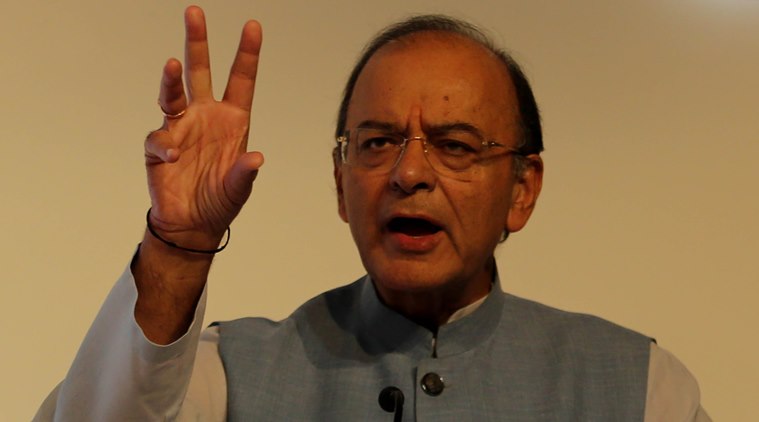 “As Delhi has no police powers, it cannot set up an investigative agency to probe crimes as had been done in the past,” Arun Jaitley said.
“As Delhi has no police powers, it cannot set up an investigative agency to probe crimes as had been done in the past,” Arun Jaitley said.
A day after the Supreme Court gave its judgment on the distribution of powers between the office of L-G and Delhi government, Union Minister Arun Jaitley said the verdict has made it clear that the AAP administration has no power to set up an investigative agency to probe crimes.
In 2015, the Arvind Kejriwal-led government had set up separate inquiry commissions to probe the alleged irregularities in the functioning of the Delhi District Cricket Association (DDCA) and the CNG fitness scam. The probes were termed “illegal” by the Delhi High Court in 2016 in its ruling on who holds the reins to Delhi.
“Firstly, if Delhi has no police powers, it cannot set up investigative agency to investigate crimes as had been done in the past,” Jaitley wrote in a Facebook note.
He also said that matters pertaining to transfers and posting of bureaucrats comes under the Centre’s domain and to presume the order was in favour of the Delhi government is “wholly erroneous”.
“Secondly, the Supreme Court has held categorically that Delhi cannot compare itself at par with other States and, therefore, any presumption that the administration of the UT cadre of services has been decided in favour of the Delhi government would be wholly erroneous,” he wrote.
“There are several issues which had directly not been commented upon, but by implication, there is some indication of those issues. However, unless issues of importance are flagged, discussed and a specific opinion is rendered, none can assume that silence implies an opinion in favour of one or the other,” Jaitley said.
What the Supreme Court has actually observed
in the Delhi Government case? https://t.co/ab3NXiT5sb— Arun Jaitley (@arunjaitley) July 5, 2018
The 5-judge bench of Supreme Court on Wednesday unanimously held that Delhi cannot be accorded the status of a state and clipped the powers of the Lieutenant Governor (LG), saying he has no “independent decision making power” and has to act on the aid and advice of the elected government.
The apex court laid down broad parameters for the governance of the national capital, which has witnessed a bitter power tussle between the Centre and Delhi government since the Aam Aadmi Party government came to power in 2014.
Jaitley said the judgment elaborates at length the constitutional philosophy behind the Constitution and reaffirms precisely the text of what the Constitution says.
“It does not add to the powers of the state government or the central government nor does it in any way dilute the same. It emphasises at the importance of elected state government, but Delhi being a Union Territory makes its powers subservient to the central government,” he said.
Jaitley said, ordinarily, in the larger interest of democracy and federal politics, the Lieutenant Governor should accept the exercise of power by the state.
“But if it has good and cogent reasons supported by material to disagree, he can record the same in writing and refer the same to the President (i.e. the central government), which will resolve the difference of opinion between the state government and the Lieutenant Governor.
“The decision of the central government will be binding both on the Lieutenant Governor and the elected state government. Thus, hereto the opinion of the centre is over-riding,” Jaitley said.
He said the judgement gives due importance to the opinion of the elected state government, but maintains the primacy of the central government in the larger interest of the national capital.
“Delhi is not a state and, therefore, there could be no assumption that powers which belong to state government’s also belongs to the elected government of the Union Territory.
“It has been specifically held by the Supreme Court that it is crystal clear that by no stretch of imagination, NCT of Delhi can be accorded the status of a state under the present constitutional scheme and the status of the Lieutenant Governor of Delhi is not that of a Governor of a State, rather he remains an administrator, in a limited sense, working with the designation of Lieutenant Governor,” Jaitley added.